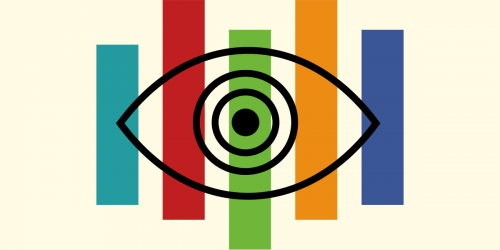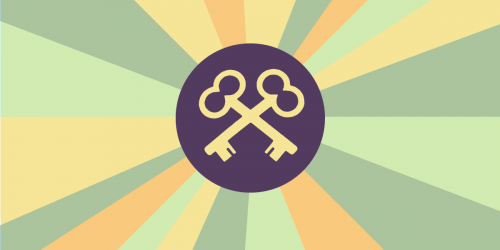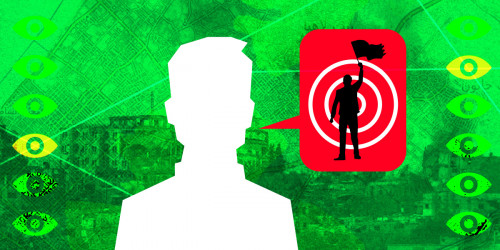Twenty-three governments have come together this week for the 4th annual Freedom Online Coalition (FOC) conference in Tallinn, Estonia—a meeting where FOC members work together to "coordinate their diplomatic efforts and engage with civil society" in order to advance Internet freedom worldwide.
The United States and the United Kingdom are both members of the FOC—meaning they’ve committed to protecting human rights and freedom online. However, when former US National Security Agency (NSA) contractor, Edward Snowden, disclosed the purported mass surveillance capabilities of the NSA and the United Kingdom's Government Communications Headquarters (GCHQ), it left civil society wondering how these two governments could possibly participate—and be leaders—in the FOC conference. In particular, recent statements by Snowden have suggested that those intelligence services were spying on civil society itself.
EFF, along with 60 other organizations have therefore called upon foreign ministers of the Freedom Online Coalition member states to ensure members "live up to their stated commitment to support civil society members or journalists whose human rights online may have been violated," and provide more details about the existence of such surveillance, its extent and justification.
Read the joint letter to the FOC foreign ministers below:
April 18, 2014
Dear Minister,
On April 8, 2014, former US National Security Agency (NSA) contractor Edward Snowden testified before the Parliamentary Assembly of the Council of Europe (PACE) via video-conference that the NSA and the United Kingdom Government Communications Headquarters (GCHQ) have used their surveillance capabilities to spy on the communications of human rights organizations and civil society groups, both domestically and internationally. Snowden did not reveal which groups the NSA or GCHQ have spied upon, but indicated that the types of organizations whose communications had been compromised included major global organizations similar to Amnesty International and Human Rights Watch, and other NGOs.
Snowden explicitly told PACE members that the NSA had "specifically targeted the communications of either leaders or staff members in a number of purely civil or human rights organizations … including domestically, within the borders of the United States."
If Snowden’s assertion is accurate, such facts would not only point to fresh dimensions of the overreach of NSA surveillance, but also would constitute an outrageous breach of the US government’s stated commitment to human rights and freedom online. It also raises the very real possibility that these organizations’ communications with confidential sources have been intercepted. Sharing this information with other governments could put victims and human rights defenders the world over in imminent danger.
The US frequently criticizes repressive states for unjustified government spying on human rights organizations, media organizations, and civil society because such surveillance has a chilling effect on freedom of expression and association and constitutes a clear form of harassment and intimidation.
Furthermore, as you are well aware, the US and the UK have taken leadership roles in the Freedom Online Coalition (FOC), the leading intergovernmental coalition, established in The Hague on December 8, 2011, for the purpose of "advancing Internet freedom—free expression, association, assembly, and privacy online – worldwide." FOC members have joined in a shared commitment to work together to voice concern over measures that restrict Internet freedom and to support individuals whose human rights online are curtailed.
FOC members also have undertaken obligations to adopt and encourage policies and practices, domestically and internationally, which ensure the protection of human rights and fundamental freedoms online, in particular freedom of expression, the right to privacy, freedom of assembly and access to information.
If the allegations about US and UK surveillance of human rights and civil society organizations are true, such practices would contradict the express commitments made by the US and the UK to the FOC.
We, the undersigned civil society and human rights organizations, seek clarification as to the allegations that the NSA and GCHQ monitored or are monitoring the communications of our organizations, or of other civil society organizations, media organizations, and human rights groups. Where the facts support these claims, we ask the US and UK governments to explain the reasons why this is occurring or has occurred in the past, and the extent of such monitoring, its continuance, and its justification.
We call upon members of the FOC to live up to their stated commitment to support civil society members or journalists whose human rights online may have been violated. We seek FOC member assistance in ascertaining the underlying factual basis for the Snowden allegations with respect to NSA and/or GCHQ spying on civil society and human rights groups, and in ensuring a halt to any violations of our privacy, freedom of expression and other human rights online.
Sincerely,
Access
Advocacy for Principled Action in Government
AGEIA DENSI
Alternative Informatics Association
Amnesty International
Article 19
Asociación de Internautas
Association for Progressive Communications (APC)
Benetech
Big Brother Watch
Bits of Freedom
Breadboard Society
Bytes for All, Pakistan
Center for Constitutional Rights
Center for Democracy & Technology
Center for Freedom of Expression and Freedom of Information (CELE), Palermo University School of Law
Centre for Internet and Society, Bangalore, India
Chaos Computer Club (CCC), Germany
Charity & Security Network
Committee to Protect Journalists
The Constitution Project
ContingenteMX
Council on American-Islamic Relations (CAIR)
Digital Rights Foundation
Digital Rights Ireland
Electronic Frontier Finland
Electronic Frontier Foundation
Electronic Privacy Information Center (EPIC)
European Digital Rights (EDRi)
Foundation for Information Policy Research
Free Press
Free Press Unlimited
Freedom House
Freedom of the Press Foundation
Global Forum for Media Development
Global Voices Advocacy
Hiperderecho
Human Rights in China
Human Rights Watch
Institute for Reporters' Freedom and Safety
International Federation for Human Rights (FIDH)
Internet Protection Lab
La Quadrature du Net
Movimento MEGA
New America Foundation's Open Technology Institute
Online Policy Group
Open Net Korea
Open Rights Group
OpenMedia.org
OpenTheGovernment.org
Panoptykon Foundation
PEN American Center
PEN International
Privacy International
Project On Government Oversight (POGO)
Reporters sans frontières
Samuelson-Glushko Canadian Internet Policy & Public Interest Clinic (CIPPIC)
Son Tus Datos
Thai Netizen Network
World Press Freedom Committee
World Privacy Forum









